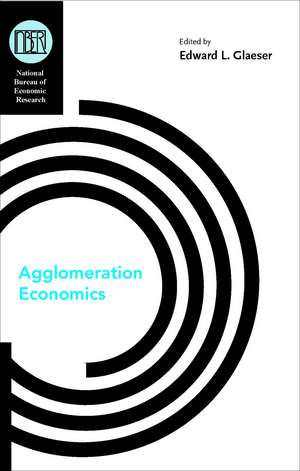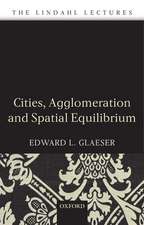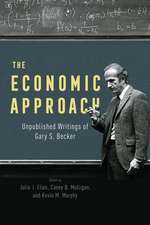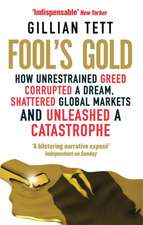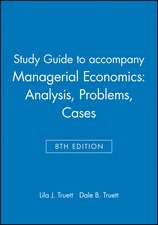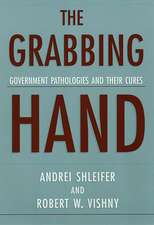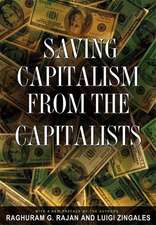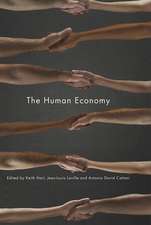Agglomeration Economics: National Bureau of Economic Research Conference Report
Editat de Edward L. Glaeseren Limba Engleză Hardback – apr 2010
When firms and people are located near each other in cities and in industrial clusters, they benefit in various ways, including by reducing the costs of exchanging goods and ideas. One might assume that these benefits would become less important as transportation and communication costs fall. Paradoxically, however, cities have become increasingly important, and even within cities industrial clusters remain vital.
Agglomeration Economics brings together a group of essays that examine the reasons why economic activity continues to cluster together despite the falling costs of moving goods and transmitting information. The studies cover a wide range of topics and approach the economics of agglomeration from different angles. Together they advance our understanding of agglomeration and its implications for a globalized world.
Din seria National Bureau of Economic Research Conference Report
- 8%
 Preț: 536.74 lei
Preț: 536.74 lei - 5%
 Preț: 900.97 lei
Preț: 900.97 lei - 27%
 Preț: 751.40 lei
Preț: 751.40 lei - 9%
 Preț: 751.95 lei
Preț: 751.95 lei - 8%
 Preț: 535.23 lei
Preț: 535.23 lei - 9%
 Preț: 661.72 lei
Preț: 661.72 lei - 9%
 Preț: 777.88 lei
Preț: 777.88 lei - 9%
 Preț: 754.96 lei
Preț: 754.96 lei - 20%
 Preț: 737.44 lei
Preț: 737.44 lei -
 Preț: 350.32 lei
Preț: 350.32 lei - 27%
 Preț: 779.96 lei
Preț: 779.96 lei -
 Preț: 275.19 lei
Preț: 275.19 lei -
 Preț: 396.85 lei
Preț: 396.85 lei - 23%
 Preț: 451.31 lei
Preț: 451.31 lei -
 Preț: 367.59 lei
Preț: 367.59 lei - 23%
 Preț: 598.34 lei
Preț: 598.34 lei - 23%
 Preț: 638.56 lei
Preț: 638.56 lei - 27%
 Preț: 715.19 lei
Preț: 715.19 lei - 23%
 Preț: 591.59 lei
Preț: 591.59 lei - 27%
 Preț: 717.44 lei
Preț: 717.44 lei - 27%
 Preț: 757.96 lei
Preț: 757.96 lei - 23%
 Preț: 623.75 lei
Preț: 623.75 lei - 23%
 Preț: 556.65 lei
Preț: 556.65 lei - 27%
 Preț: 872.19 lei
Preț: 872.19 lei - 23%
 Preț: 616.34 lei
Preț: 616.34 lei - 27%
 Preț: 762.17 lei
Preț: 762.17 lei - 27%
 Preț: 802.94 lei
Preț: 802.94 lei - 27%
 Preț: 813.21 lei
Preț: 813.21 lei -
 Preț: 384.89 lei
Preț: 384.89 lei - 23%
 Preț: 454.11 lei
Preț: 454.11 lei - 27%
 Preț: 762.17 lei
Preț: 762.17 lei -
 Preț: 486.42 lei
Preț: 486.42 lei -
 Preț: 391.85 lei
Preț: 391.85 lei - 23%
 Preț: 629.08 lei
Preț: 629.08 lei - 20%
 Preț: 430.84 lei
Preț: 430.84 lei - 20%
 Preț: 368.22 lei
Preț: 368.22 lei - 22%
 Preț: 624.68 lei
Preț: 624.68 lei - 21%
 Preț: 424.17 lei
Preț: 424.17 lei - 15%
 Preț: 214.21 lei
Preț: 214.21 lei - 22%
 Preț: 614.43 lei
Preț: 614.43 lei - 20%
 Preț: 466.06 lei
Preț: 466.06 lei - 22%
 Preț: 552.54 lei
Preț: 552.54 lei - 15%
 Preț: 244.53 lei
Preț: 244.53 lei - 20%
 Preț: 494.56 lei
Preț: 494.56 lei - 21%
 Preț: 488.86 lei
Preț: 488.86 lei - 11%
 Preț: 301.72 lei
Preț: 301.72 lei - 21%
 Preț: 464.96 lei
Preț: 464.96 lei - 21%
 Preț: 378.58 lei
Preț: 378.58 lei
Preț: 672.20 lei
Preț vechi: 872.99 lei
-23% Nou
Puncte Express: 1008
Preț estimativ în valută:
128.62€ • 134.29$ • 106.45£
128.62€ • 134.29$ • 106.45£
Carte tipărită la comandă
Livrare economică 04-18 aprilie
Preluare comenzi: 021 569.72.76
Specificații
ISBN-13: 9780226297897
ISBN-10: 0226297896
Pagini: 376
Ilustrații: 61 line drawings, 87 tables
Dimensiuni: 152 x 229 x 25 mm
Greutate: 0.63 kg
Editura: University of Chicago Press
Colecția University of Chicago Press
Seria National Bureau of Economic Research Conference Report
ISBN-10: 0226297896
Pagini: 376
Ilustrații: 61 line drawings, 87 tables
Dimensiuni: 152 x 229 x 25 mm
Greutate: 0.63 kg
Editura: University of Chicago Press
Colecția University of Chicago Press
Seria National Bureau of Economic Research Conference Report
Notă biografică
Edward L. Glaeser is the Fred and Eleanor Glimp Professor of Economics at Harvard University, where he also serves as director of the Taubman Center for State and Local Government and director of the Rappaport Institute for Greater Boston. He is a research associate and director of the Urban Economics working group at the NBER.
Cuprins
Acknowledgments ixIntroductionEdward L. Glaeser1. Estimating Agglomeration Economies with History, Geology, and Worker EffectsPierre- Philippe Combes, Gilles Duranton, Laurent Gobillon, and Sébastien Roux2. Dispersion in House Price and Income Growth across Markets: Facts and TheoriesJoseph Gyourko, Christopher Mayer, and Todd Sinai3. Cities as Six- by- Six- Mile Squares: Zipf ’s Law?Thomas J. Holmes and Sanghoon Lee
4. Labor Pooling as a Source of Agglomeration:An Empirical InvestigationHenry G. Overman and Diego Puga5. Urbanization, Agglomeration, and Coagglomeration of Service IndustriesJed Kolko6. Who Benefi ts Whom in the Neighborhood? Demographics and Retail Product GeographyJoel Waldfogel7. Understanding Agglomerations in Health Care Katherine Baicker and Amitabh Chandra8. The Agglomeration of U.S. Ethnic Inventors William R. Kerr9. Small Establishments/ Big Effects: Agglomeration, Industrial Organization, and EntrepreneurshipStuart S. Rosenthal and William C. Strange10. Did the Death of Distance Hurt Detroit and Help New York? Edward L. Glaeser and Giacomo A. M. Ponzetto11. New Evidence on Trends in the Cost ofUrban AgglomerationMatthew E. KahnContributorsAuthor Index Subject Index
4. Labor Pooling as a Source of Agglomeration:An Empirical InvestigationHenry G. Overman and Diego Puga5. Urbanization, Agglomeration, and Coagglomeration of Service IndustriesJed Kolko6. Who Benefi ts Whom in the Neighborhood? Demographics and Retail Product GeographyJoel Waldfogel7. Understanding Agglomerations in Health Care Katherine Baicker and Amitabh Chandra8. The Agglomeration of U.S. Ethnic Inventors William R. Kerr9. Small Establishments/ Big Effects: Agglomeration, Industrial Organization, and EntrepreneurshipStuart S. Rosenthal and William C. Strange10. Did the Death of Distance Hurt Detroit and Help New York? Edward L. Glaeser and Giacomo A. M. Ponzetto11. New Evidence on Trends in the Cost ofUrban AgglomerationMatthew E. KahnContributorsAuthor Index Subject Index
